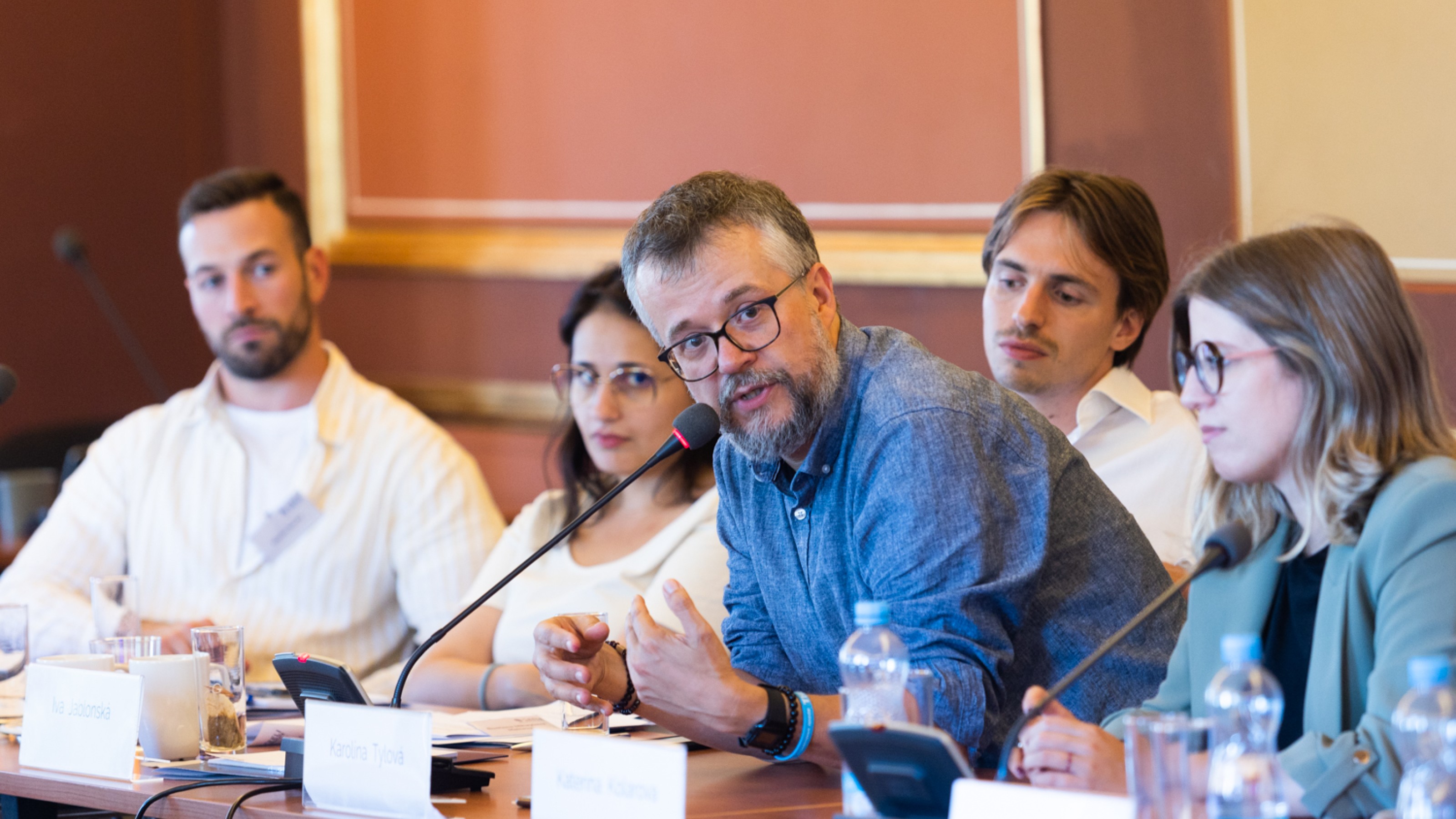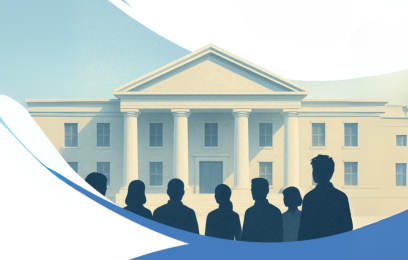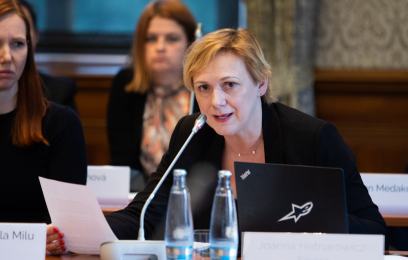Communicating about the Rule of Law

For legal professionals, public trust is an enabling component of their work. Without it, courts cease to function effectively. Alarmingly, though, Europeans’ view of the judiciary is poor. In 2022, only 53 percent of European Union citizens rated the independence of the courts and judges in their country as “good,” with 35 percent giving them a negative rating.
Changing this perception–and protecting the rule of law–requires a multi-pronged strategy. First and foremost, courts must perform their duties effectively, ethically, and transparently. But even then, courts need to share their successes with a skeptical public.
To improve how European courts communicate, the CEELI Institute recently conducted a two-day workshop to help judges tell their stories more convincingly.
“People cannot trust what they can’t understand,” said Ioanna Lachana, head of communications for the EU Special Representative in Kosovo, and a program lecturer. “What is the rule of law? Why is the judiciary important? If the public understands these concepts, we can improve the level of trust, but not before.”
Typically, it’s journalists who take direction from legal professionals–writing stories about court decisions and using lawyers and judges as sources. During the workshop, the tables were turned, and media professionals advised the courts on how to improve their communications.
Part of the challenge is the complexity of the topic. Albert Guasch Rafael, a journalist communications coordinator for Democracy Reporting International, compared legal communication to communicating about science. Just like atomic theory or climate change, the public needs help visualizing these concepts. To overcome this hurdle, courts must be “clear, credible, specific, and relatable,” he said.
Political pressure is also adding to mistrust in the judiciary. In Poland, attacks on judicial independence are ongoing, and public trust is in decline–it fell five percentage points between 2021 and 2022, according to the European Commission. During the CEELI training, experts discussed how to push back against these trends while maintaining high judicial standards.
“Courts issue public judgments every day, but one bad judgment in the public eye is enough to destroy your reputation,” said Lachana. “So, what can we do about this? Better communication, and more targeted information.”
She added: “Silence is a message. When you decide to say nothing, that sends a message. You need to be very aware of this.”
Molly Quell, a journalist for Courthouse News Service in The Hague and another workshop lecturer, agreed. Before she came to this conference, she asked her colleagues based in the Hague: “What’s everybody’s biggest complaint about communication from the courts?”
“Universally... the biggest problem is that the International Criminal Court has no spokesperson for the prosecutor’s office,” Quell said. “It’s not that [the court] sends us press releases at 6 p.m. on Friday nights. It’s not endless delays... It’s not failure to allow journalists to have access to people. It’s that there is no spokesperson to call for the prosecutor.”
To encourage solutions to these and other problems, participants were exposed to communication best practices. At the European Court of Justice in Luxembourg, communicators create video content about how the court works and how rulings affect the public.
Democracy Reporting International teaches courts how to write and issue effective press releases and about the value of hope-based messaging.
At the Polish Judges’ Association (IUSTITIA), judges themselves draft and distribute social media content, a level of involvement few other participants emulated. Marta Kożuchowska-Warywoda, a district court judge in Warsaw, said that while doing so is time consuming, it’s one of the best ways to reach the public directly.
“We need to communicate to the public that the rule of law is important to people’s lives,” said Gavrilov Mario Todorov, director of communications at the human rights group, Bulgarian Helsinki Committee. “I know how hard it is to explain to the wider public complex issues so that people can understand.”
Changing negative attitudes will require courts to embrace openness and transparency. In that regard, journalists, whose profession demands both, may in fact be the best teachers.
“How do we get the message across to the public that the judiciary is important?” said Marek Svoboda, director of programs at the CEELI Institute. “The logic behind this gathering is to address that question by bringing stakeholders together from both sides to discuss communication ideas–and to learn from each other.”


